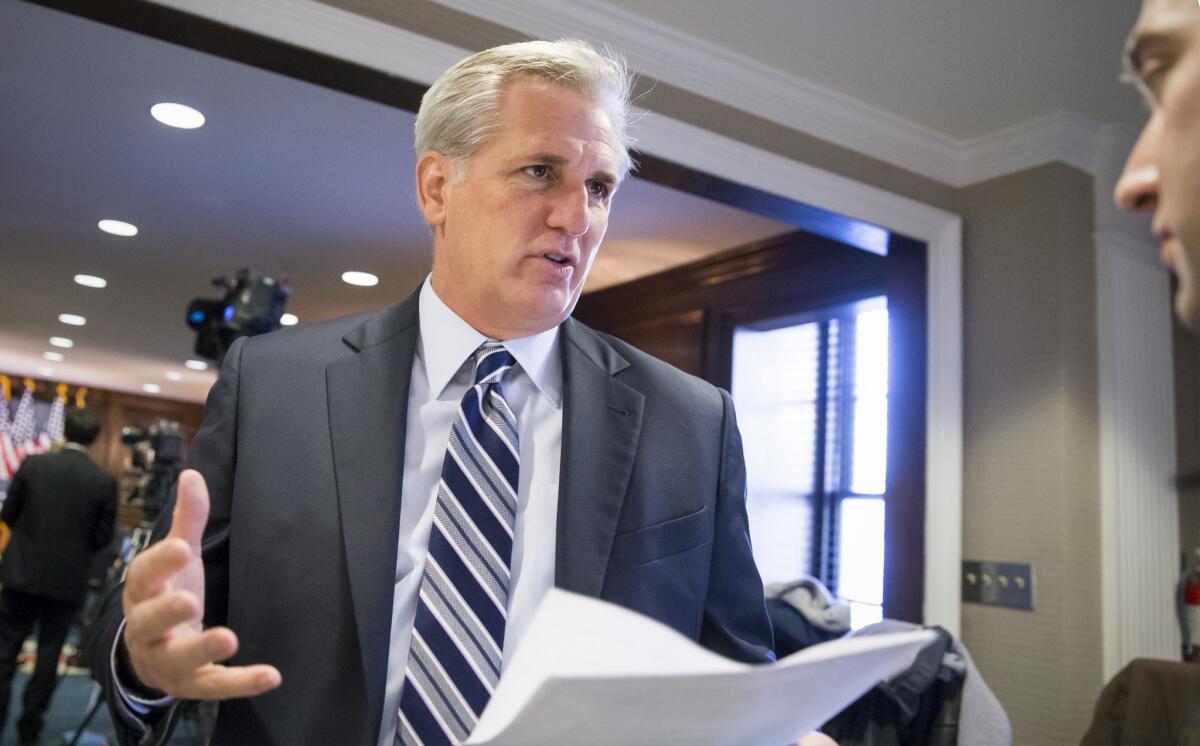Editorial: How the state GOP’s drought relief bill undermined serious work aimed at a solution

It might have been a sneaky, underhanded maneuver, or it might have been a simple miscommunication. Either way, California’s GOP House delegation took a foolish step last week when members stuck an unfinished drought relief bill onto the omnibus spending bill for fiscal 2016, then suggested that Sen. Dianne Feinstein, with whom they had been negotiating for months, was on board. She wasn’t.
Perhaps the thinking was that Feinstein could be bullied into accepting the House’s version if it was inserted into a spending bill that must pass soon in order to keep the government in business. Or maybe the House contingent of San Joaquin Valley Republicans, who have made one attempt after another to gut environmental protections in the name of drought relief, didn’t like the way negotiations with Feinstein were going.
If so, that’s a shame. Feinstein began the process with a solid water bill, introduced over the summer with her Senate colleague from California, Barbara Boxer. Feinstein has been open to tweaking the environmental regulatory framework to help agriculture survive the drought, but her focus has been on giving the state sufficient flexibility to respond to less-predictable climate patterns. She has gone the extra mile to accommodate the GOP House group, including Majority Leader Kevin McCarthy of Bakersfield.
McCarthy and company have tried repeatedly to blame water shortages on environmental protections rather than the obvious cause: the state’s four-year drought. They have tried numerous times to claim an even greater proportion of the state’s scarce water for Central Valley agriculture in wet and dry years alike. Feinstein has engaged them, trying to keep their demands within the bounds of reason, joining them in support for new dams, and taking heat from environmentalists who complain that she is too flexible on habitat and species protection. Her approach was close to producing results.
As is so often the case with California water policy, though, a workable agreement appears to have been scuttled. Now negotiations may have to start all over again, against the backdrop of El Niño storms instead of parched farmland. The irony is that California will still have a shortage of usable water, and will have no legislation in place to summon federal help for managing either drought or flooding.
But the alternative — catering to the demands of agribusiness at the expense of the environment, and subverting the full public process in favor of a sneaky (or goofy) procedural move, would be worse. Feinstein had a good bill and made a righteous, good-faith effort to craft something acceptable to all parties. We hope she keeps with it, even if it means pushing a drought-relief — and perhaps a flood-relief — bill to next year.
Follow the Opinion section on Twitter @latimesopinion and Facebook
More to Read
A cure for the common opinion
Get thought-provoking perspectives with our weekly newsletter.
You may occasionally receive promotional content from the Los Angeles Times.










